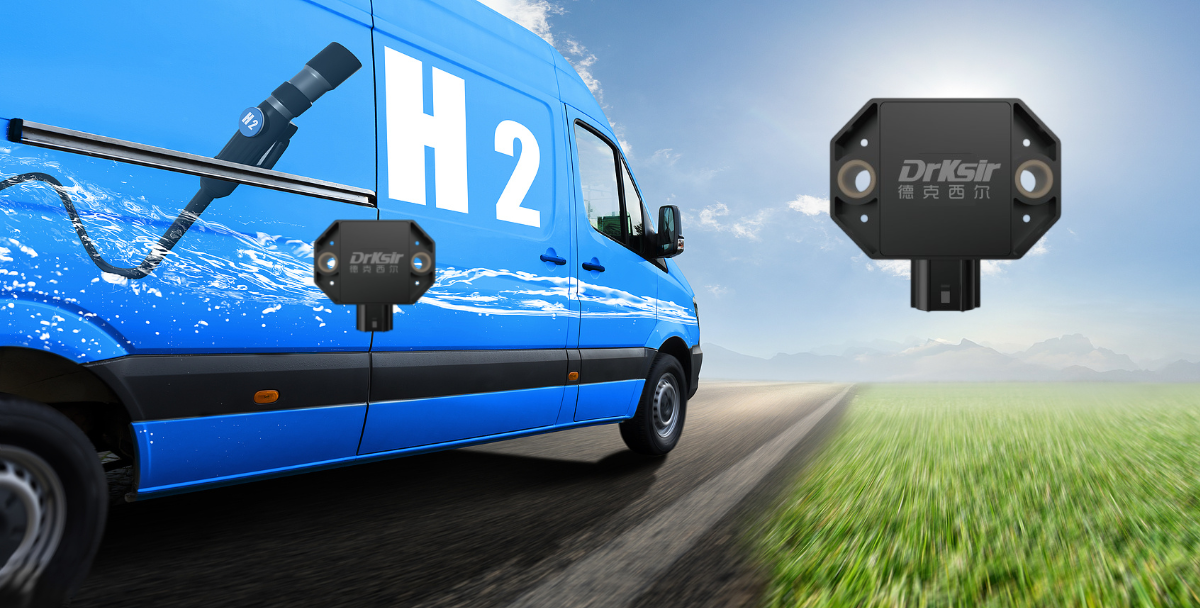Today, with the rapid development of science and technology, the field of new energy vehicles is booming with an unprecedented trend, and Vehicle hydrogen sensors play a crucial role in this process. With the increasing attention of the world to environmental protection and the profound understanding of the traditional energy crisis, hydrogen energy vehicles, as a new energy transportation tool with great potential, have gradually entered people's vision. As a clean and efficient energy source, hydrogen has many advantages such as only water as the combustion product and high energy density. However, as a coin has two sides, hydrogen brings many benefits at the same time, there are certain security risks. Due to the flammable and explosive characteristics of hydrogen, once a leak occurs, if it is not found in time and effective measures are taken, it is very likely to cause serious safety accidents. This makes the need for real-time monitoring of hydrogen leakage increasingly urgent, and the on-board hydrogen sensor comes into being, and its application is becoming more and more extensive. At present, in the global car hydrogen sensor market, Japan's FIS, Riken and New Universe companies still occupy a major position. With years of technical accumulation and rich research and development experience in the field of hydrogen sensors, these companies have launched a series of excellent performance, stable and reliable on-board hydrogen sensor products. Their sensors are industry-leading in terms of accuracy, sensitivity and response time and are widely used in hydrogen vehicles from major automotive manufacturers around the world. For example, Japan's FIS hydrogen sensor has won the favor of many automobile manufacturers with its high-precision detection ability and excellent stability. Riken's products are outstanding in terms of anti-interference ability and durability, providing a strong guarantee for the safe operation of hydrogen energy vehicles. The on-board hydrogen sensor from Japan's COSMOS has achieved remarkable results in miniaturization and intelligence, making it better suited to the integration needs of modern automotive electronic systems. However, in recent years, domestic enterprises are not outdone, and continue to make efforts in the field of vehicle hydrogen sensors. Among them, Dexil is the leader in domestic enterprises. Dexil actively invested research and development resources, and after unremitting efforts, successfully launched hydrogen related sensor products based on quantum conductivity principle based on cluster beam deposition technology. These products not only gradually approach the international advanced level in performance, but also have obvious advantages in cost control and localized services. Dexil's on-board hydrogen sensors have been applied in new energy vehicles, making important contributions to the development of the domestic hydrogen energy vehicle industry. Through close cooperation with domestic automobile manufacturers, Dexil continuously optimizes product performance and improves product quality to meet the strict requirements of the market for on-board hydrogen sensors. The rise of domestic enterprises is not only the embodiment of China's efforts and progress in scientific and technological innovation, but also brings hope for breaking foreign technology monopoly and realizing domestic substitution. With the strong support for the domestic hydrogen energy vehicle industry and the growing market demand, more and more domestic enterprises have begun to get involved in the field of vehicle hydrogen sensors. They increase investment in research and development, introduce high-end talents, strengthen cooperation with universities and scientific research institutions, and strive to improve their technical strength. At the same time, domestic enterprises also give full play to local advantages, according to the characteristics and needs of the domestic market, to develop more targeted and adaptable products. For example, some companies have carried out bold innovations in the intelligence and networking of sensors, so that the on-board hydrogen sensor can achieve better integration and collaboration with other electronic systems of the car, providing users with more comprehensive and convenient security. In the future, vehicle hydrogen sensor technology will continue to improve and improve. With the continuous emergence of new materials and new processes, the performance of sensors will be further improved. Vehicle hydrogen sensors with higher accuracy, stronger sensitivity and shorter response time will become the mainstream products in the market. At the same time, with the wide application of artificial intelligence, big data and other technologies, on-board hydrogen sensors will become more intelligent and automated. It can not only monitor the hydrogen leakage situation in real time, but also analyze and judge the cause of the leak, and issue warnings and suggestions to users in time. In addition, with the continuous expansion of the global hydrogen energy vehicle market, the market demand for on-board hydrogen sensors will also show explosive growth. Domestic enterprises should seize this opportunity to continuously improve their core competitiveness, actively expand domestic and foreign markets, and contribute more to the vigorous development of China's hydrogen energy automobile industry. In short, the importance of on-board hydrogen sensors in the field of new energy vehicles is self-evident. Both foreign leading enterprises and domestic emerging forces are contributing to the safe development of hydrogen energy vehicles. Let's look forward to the continuous progress of on-board hydrogen sensor technology to create a safer and more reliable environment for the prosperous development of the new energy vehicle industry. It is believed that in the near future, with the continuous breakthrough of technology and the continuous maturity of the market, on-board hydrogen sensors will become an indispensable part of hydrogen energy vehicles, providing a solid guarantee for human green travel and sustainable development.
2024.11.22






